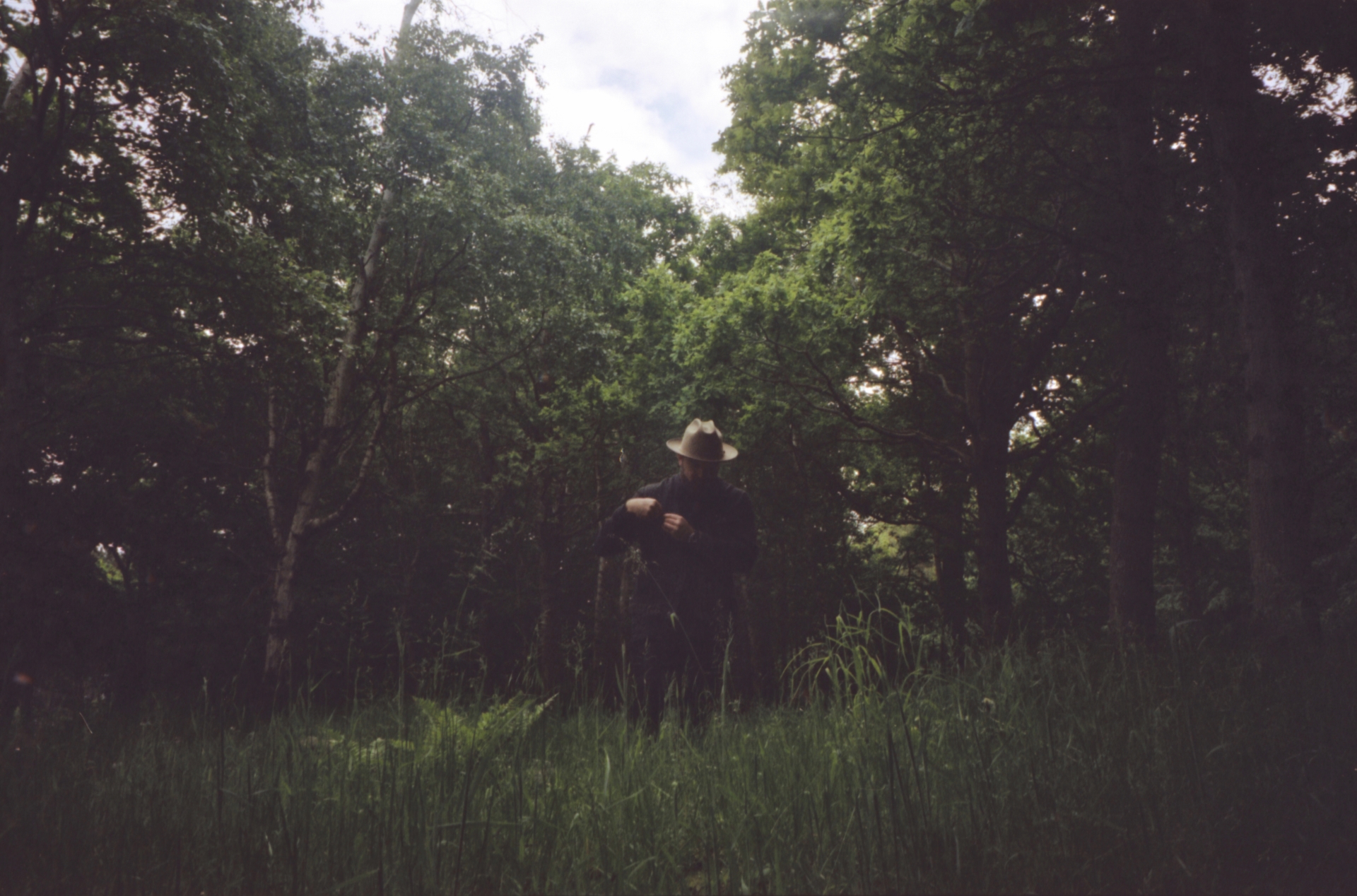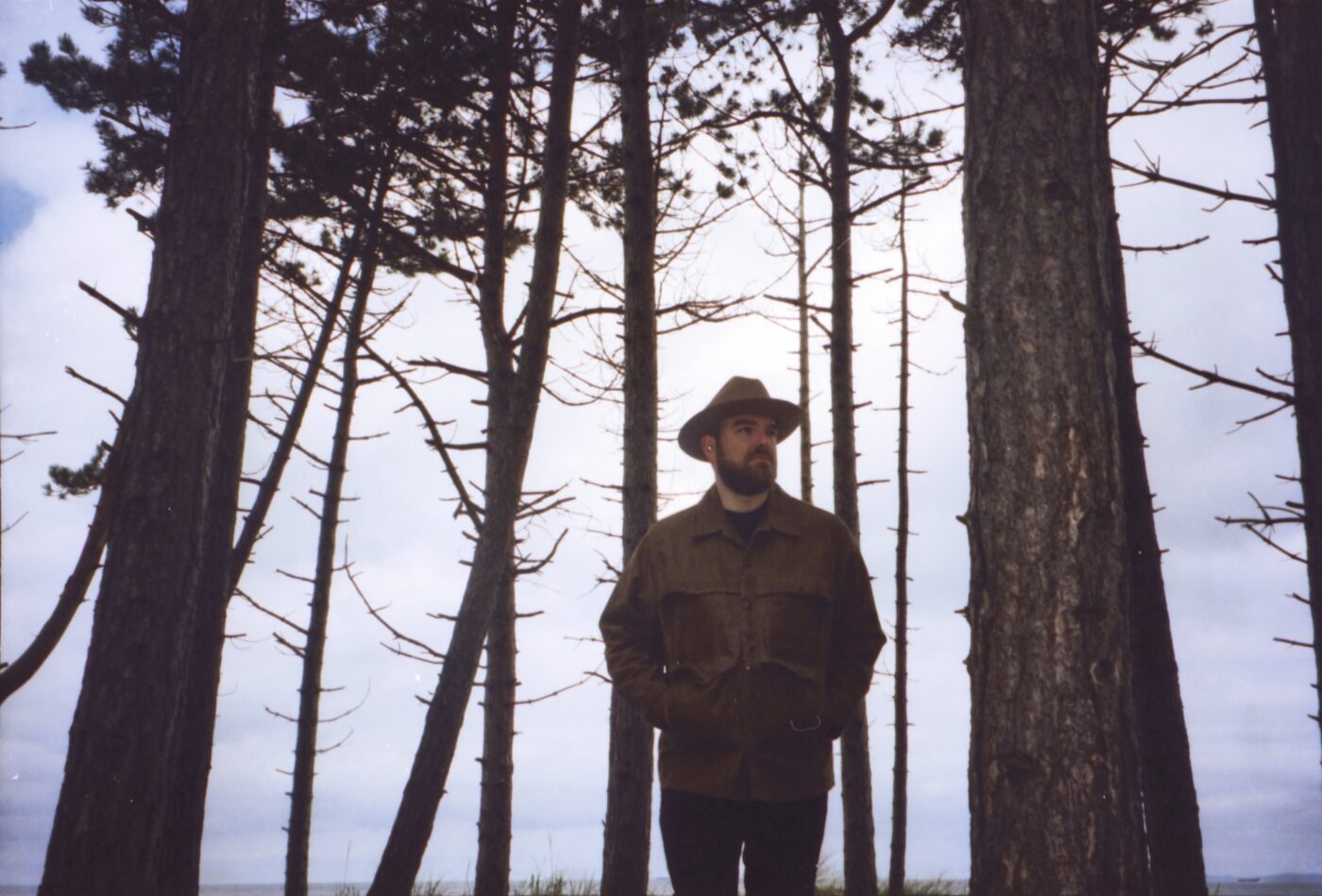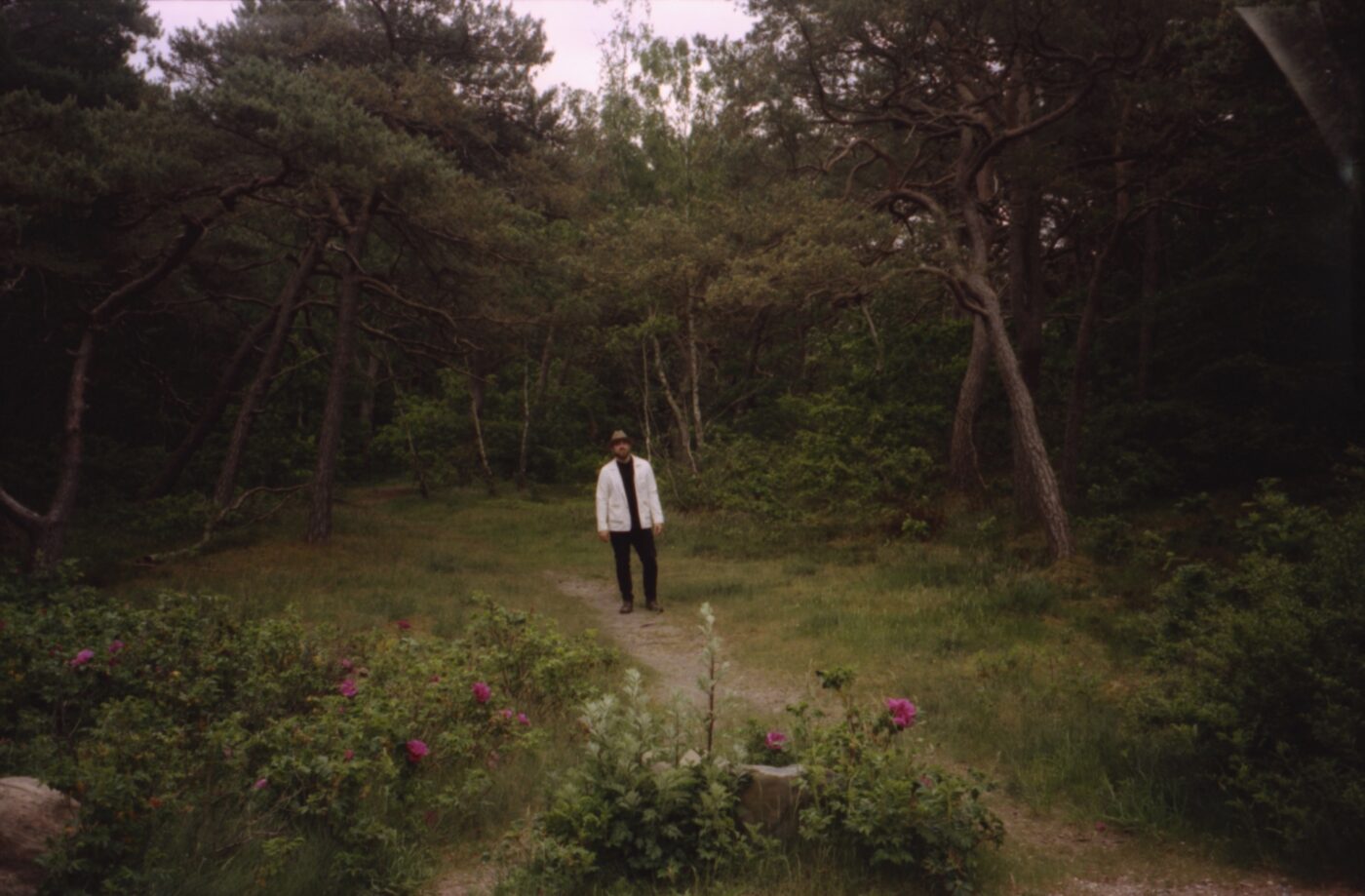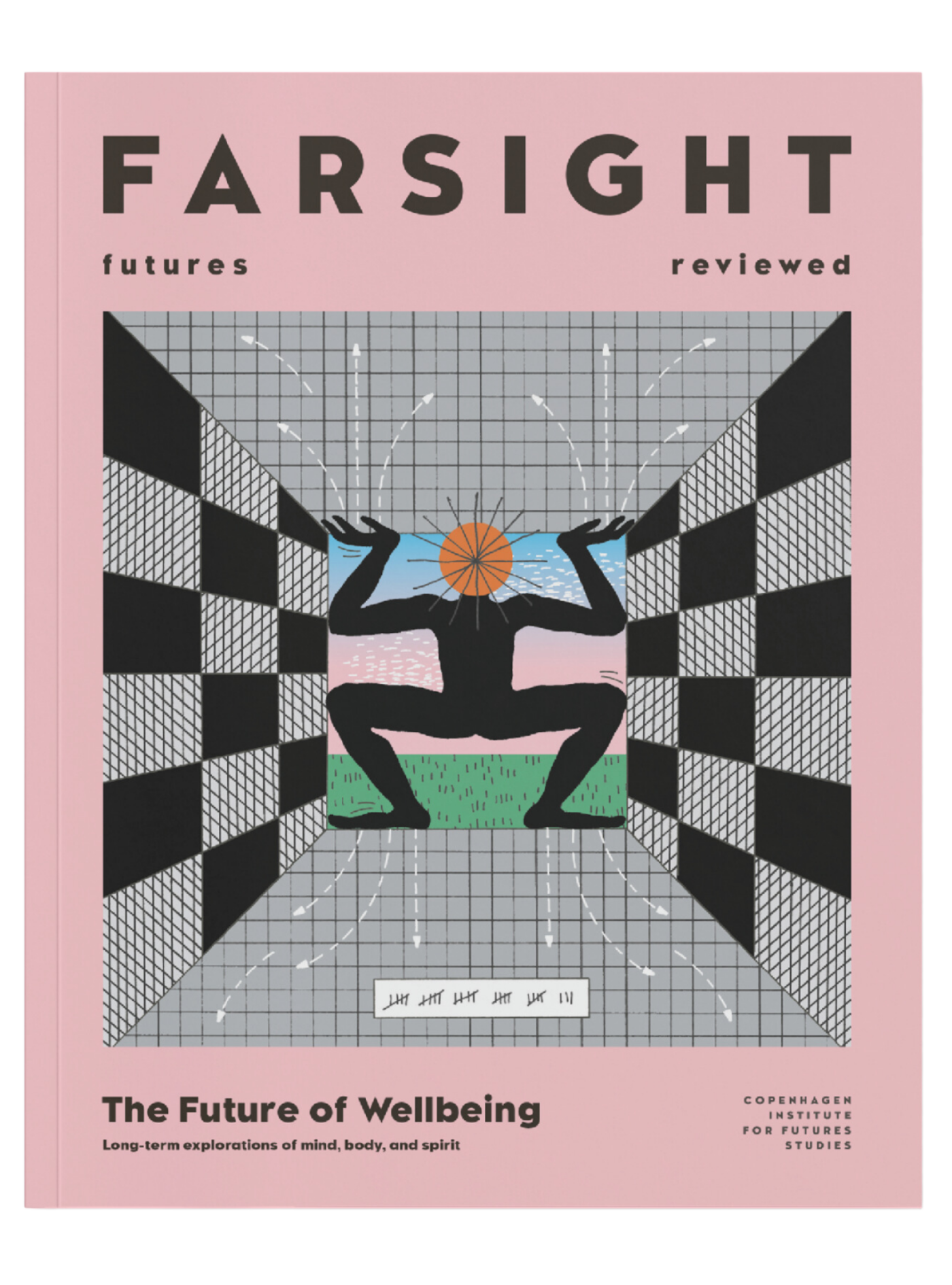
In turn, we use cookies to measure and obtain statistical data about the navigation of the users. You can configure and accept the use of the cookies, and modify your consent options, at any time.

Get to know one of the Directors at the Copenhagen Institute for Futures Studies, Jonas Gissel Mikkelsen
Photo: Natalie Walker
“I think I’ve always had an innocence in how I relate to the world. And a good deal of defiance too – especially when people tell me what I can and cannot do.”
Jonas Gissel Mikkelsen recounts the story of how his 7th grade teacher in his native Grenaa, Denmark, reacted when he attempted to express that he wasn’t sure what he wanted to do with his life – except for the notion of wanting to “make a positive impact on the world” somehow.
“Call it naïve, but I think I’ve always had that drive. Instead of offering encouragement he urged me to forget the nonsense, remember where I’m from, and go get my craftsman diploma. I had my mind set on other things, and in any case, he wasn’t going to get to decide that.”
As a teenager, Jonas saw two clear avenues to effect change: politics, where power is concentrated, and the corporate world, where all the money is – and hence also a great deal of power. Politics, he says, seemed like the messier option, so he decided to pursue a mercantile career.
Following a few years of studying in Denmark, Jonas made a stint at Harley- Davidson in California, trying to help the American motorcycle manufacturer convince young people to ride Harleys again. He eventually exchanged the leather for tweed and made his way to England to finish his studies. There he became Vice President of the Cambridge University Technology and Enterprise Club, a student-run entrepreneurship society – which further opened his mind to seemingly impossible ideas.

“I got to meet some very cool people, including George Whitesides who was the former Chief of Staff at NASA and Chief Space Officer at Virgin Galactic. I felt a truly different world was possible than the one I think my schoolteacher had envisioned. These were people who were changing not just our world, but worlds beyond ours” he chuckles. “It’s poetic really, when I was kid I was so into this idea that I was gifted a patch of land on the moon, and yet as a young adult, when I suppose one is expected to ‘grow-up’ – there I was learning that this kind of dreaming was the foundation for true discovery and innovation.”
Such experiences would be the foundation for Jonas’ onward career as he moved from one passion to another, eventually leading the launch of an alternative design agency as well as an experimental ‘skunkworks’ labs dedicated to radical organisational innovation.
“I became involved with some of the most innovative actors out there, such as VR company Magic Leap, in a quest to reimagine the future of storytelling using narrative technologies like virtual and augmented reality. It felt ambitious, like we were on the cutting edge of creating true change on so many fronts,” he recounts.
“It was an incredibly exciting place to be, and I was very invested in my projects, so it was a major let-down when we had to eventually close most of them down due to demands for downsizing across the global organisation. The financial logic behind the decision to me wasn’t sound at all, but the reason why – the endemic short-termism – this to me will always be truly staggering. It was to be the breaking point and I decided to leave. It wasn’t easy as I loved being part of the innovation space, but I also felt I was at a decision point between two very different forks in the road. I wanted to still try to pursue my boyhood dream of trying to make a positive impact on the world – but this time I would do it from ‘outside the system’.
Having made his choice, Jonas returned to his native Denmark and began searching for employment that would better align with his ideals and ambitions.

“Life has this great irony, in that though I thought I was making this big decision to move away from the innovation space, when I started working freelance, I ended up advising on holistic corporate innovation. That’s when I was alerted to The Copenhagen Institute for Futures Studies. I was told they had just had a change in management and were looking for someone to come in and help them revitalise and rethink their approach to marketing and publishing, and to formulate a plan for where to go next. I knew of the Institute through their publications, and I already had a good impression. Joining the team put me in a position that even I had stopped believing was possible. And yet, here was a chance to really promote a longer-term view – the fundamental endeavour of the Institute – not just in the corporate world, but among policymakers, state-actors, and all kinds of change-makers. The Institute works in this hybrid space, where nothing is too outrageous to explore, but where we still can analyse and measure impact – not just our own, but that of our collaborators.
After joining the Institute as a Director and part of the management team in 2019, he quickly became involved with formulating a new vision for the organisation as well a strategy for how to get there.
“I saw the Institute as a little too closed-off, primarily orienting itself towards the private sector, like a consultancy would. There was also a caution around being too outspoken and setting normative goals for the future. This last part was perfectly understandable, due to the legacy of futures studies and foresight as strictly explorative disciplines. But I believed that a change of course was needed, and luckily, my new colleagues agreed.”
“This is my current passion: to ‘democratise the future’, and I believe it is a hugely necessary step towards building a society more oriented towards the long term, and thus better able to solve the major challenges ahead.”
Jonas Gissel Mikkelsen, Director at the Copenhagen Institute for Futures Studies
Jonas now fronts many of the progressive endeavours that increasingly define the ambitions of the Institute. This includes setting up cross-sector initiatives with the goal of making futures studies and foresight something that more people can learn the tools for how to engage in. Most recently, he was part of the team behind the establishment of a Danish hub for the international non-profit movement, Teach the Future, which has as its goal to strengthen children and youths’ futures literacy to empower them to understand and act on the future.
“This is my current passion: to ‘democratise the future’, and I believe it is a hugely necessary step towards building a society more oriented towards the long term, and thus better able to solve the major challenges ahead.

“Real change does not only happen in board rooms or parliaments. Combating short-termism will require a broad cultural shift, which must include education. It’s a difficult task, but a necessary one because the global challenges we face – climate change being the best example – are inherently long-term in their scope. That said, I think our current era is perhaps the most fruitful for creating longterm change since the end of World War Two, which gave rise to the UN, the EU, where the world order changed, and priorities shifted.”
“The urge to be revered by future generations used to be culture-defining. Kings and emperors would launch construction works – cathedrals, tombs, or temples – that they would not see finished in their lifetimes, and which were meant for posterity. Of course, there was often a good deal of megalomania associated with this, and sometimes promises of a prosperous afterlife as well, but it’s also a mindset with an inherent focus on the long-term. We need more of this.”

Stay up-to-date with the latest issue of FARSIGHT
Become a Futures Member